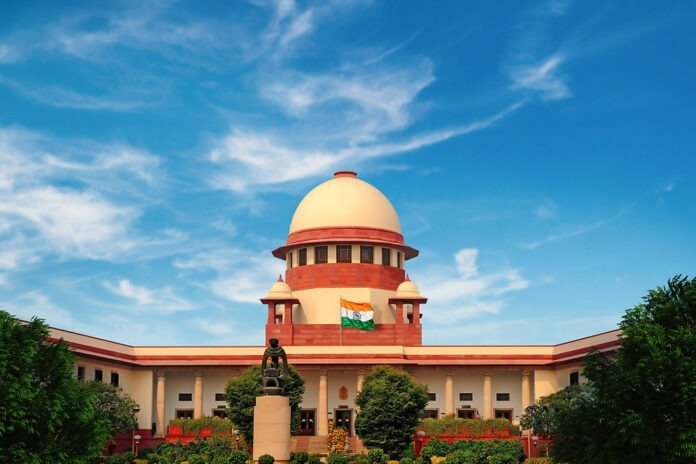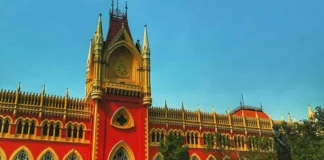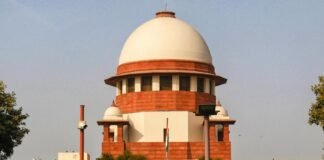Supreme Court declines SHUATS writ plea on idol installation, advises seeking High Court remedy under Article 226.
The Supreme Court has directed Sam Higginbottom University to approach the High Court regarding allegations of forceful idol installation, asserting it falls under Article 226 jurisdiction.
Supreme Court Refuses Writ Petition; Asks Petitioner to Move High Court
In a development highlighting the principle of judicial hierarchy and jurisdiction, the Supreme Court of India, on September 4, refused to entertain a writ petition filed under Article 32 by the Sam Higginbotham Charitable Society, which administers Sam Higginbottom University of Agriculture, Technology and Sciences (SHUATS) in Prayagraj, Uttar Pradesh.
The petition alleged that unidentified individuals had forcefully installed Hindu idols in the Dean’s office, breaching the minority status and character of the institution. According to the petitioner, the incident disrupted the academic atmosphere and infringed upon the rights of the religious minority institution.
The matter was heard by a bench comprising Chief Justice of India DY Chandrachud and Justice K Vinod Chandran, which observed that the issues raised could be effectively addressed by the jurisdictional High Court under Article 226, rather than invoking the Supreme Court’s direct writ jurisdiction under Article 32.
Allegations: Forced Idol Installation & Ganesh Chaturthi Celebrations
The petition stated that the installation of Hindu idols was not sanctioned by the university administration and was carried out without permission. It further claimed that Ganesh Chaturthi celebrations were organised inside the University premises in a manner inconsistent with the minority character of SHUATS, which is registered as a Christian minority institution.
According to the plea, the incident undermines the constitutional protections granted to minority institutions under Articles 29 and 30 of the Constitution, and sought directions to state authorities to intervene and safeguard its autonomy and religious identity.
The petitioner had earlier submitted a representation to local law enforcement and the District Magistrate, seeking immediate action. However, the petition claimed that no substantive response was received, prompting the decision to move the Apex Court.
Court’s Response: Follow the Federal Structure
In its brief order, the Apex Court declined to interfere and instead granted liberty to the petitioner to approach the High Court. The bench stated, “We are not inclined to entertain this petition under Article 32. The petitioner is at liberty to approach the jurisdictional High Court under Article 226 of the Constitution.”
This move is consistent with the Court’s ongoing trend to discourage direct access under Article 32, especially in matters where High Courts are better equipped to address issues involving local facts, enforcement of rights, and need for evidence examination.
Legal Context: Minority Institutions & Article 32 vs Article 226
While Article 32 provides the right to approach the Supreme Court directly for the enforcement of fundamental rights, it is considered an extraordinary remedy. Conversely, Article 226 empowers High Courts to issue writs not only for the enforcement of fundamental rights but also for any other purpose.
Given that the petitioner’s grievance related primarily to administrative inaction and potential breach of fundamental rights, the Apex Court’s refusal signals a preference for judicial discipline and maintaining the federal structure of judicial remedies.
Legal experts point out that while the university may have a valid claim regarding its minority status, the factual matrix — including who installed the idols, whether consent was sought, and what role authorities played — is better assessed at the High Court level where evidence, affidavits, and ground-level inquiries can be more efficiently managed.
Reactions & Implications
Though the Court’s decision was procedural in nature, the case has sparked conversation about the delicate balance between religious expression and institutional autonomy.
An advocate familiar with the case, speaking anonymously, stated: “This is not a case of opposing religious practice per se — it’s about preserving the institutional character that is constitutionally protected. If allowed unchecked, it can set a dangerous precedent.”
Meanwhile, SHUATS students and faculty have reportedly expressed concern over the growing communal undertones surrounding the incident. University sources say internal inquiries are ongoing and measures are being considered to reinforce the secular and inclusive environment of the campus.
Broader Legal Insight
This case subtly highlights the increasing frequency of religious identity disputes within educational spaces — a space intended to remain neutral and inclusive under constitutional law. It also demonstrates the judiciary’s continued reinforcement of jurisdictional boundaries between constitutional courts.
Legal scholars emphasise that such cases require careful judicial scrutiny to ensure both religious freedom and institutional integrity are protected, especially in minority-run institutions. The broader challenge, they suggest, lies in avoiding communal polarisation while upholding the law.
For continued updates on this matter and similar legal developments, follow our National News section on The Legal Observer.
You can also find analysis videos on our official YouTube Channel and access insightful views here.
Internal Links Used:
- https://thelegalobserver.com/category/news/national/
- https://thelegalobserver.com/category/views/insight/
- https://thelegalobserver.com/videos/




